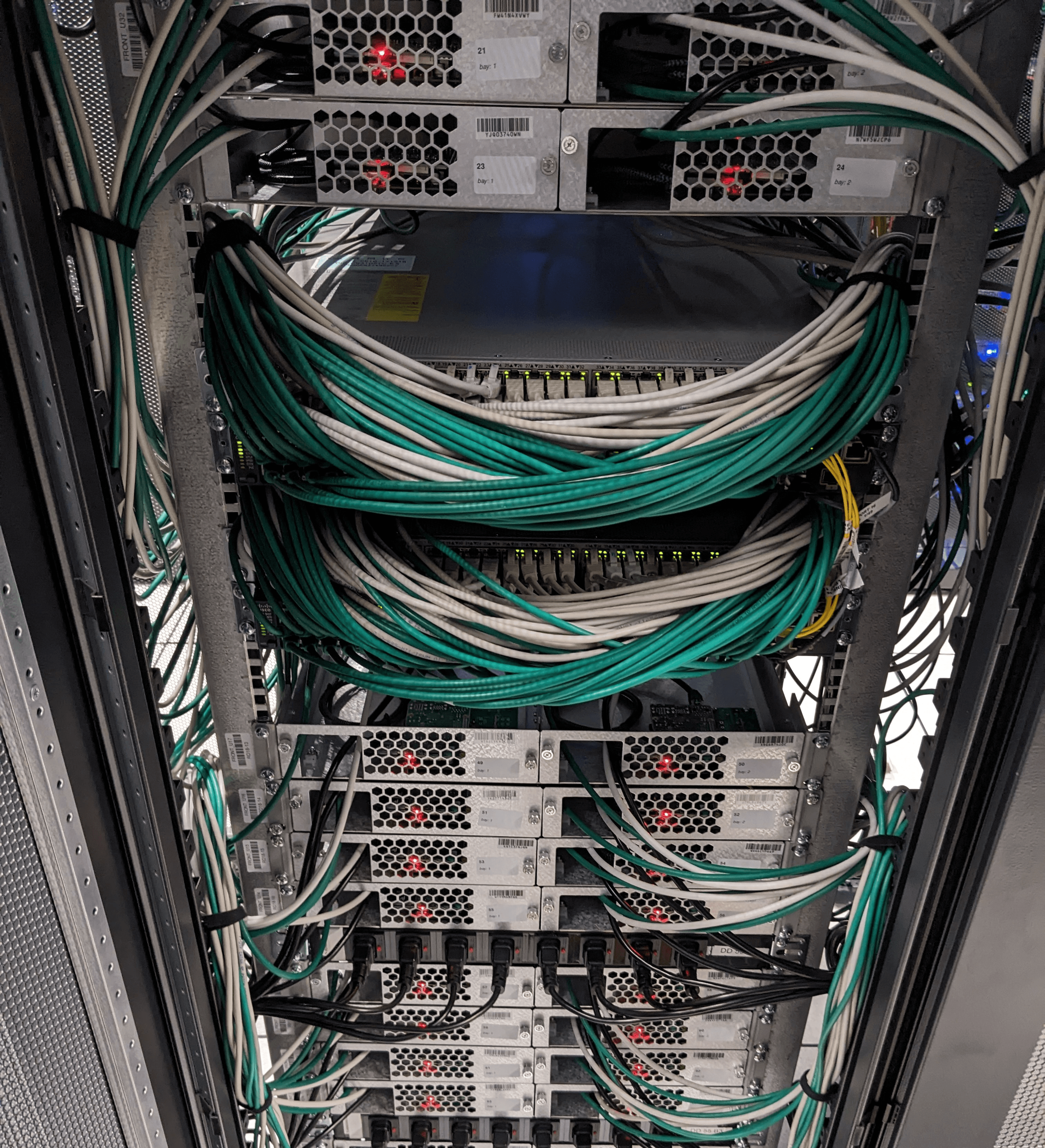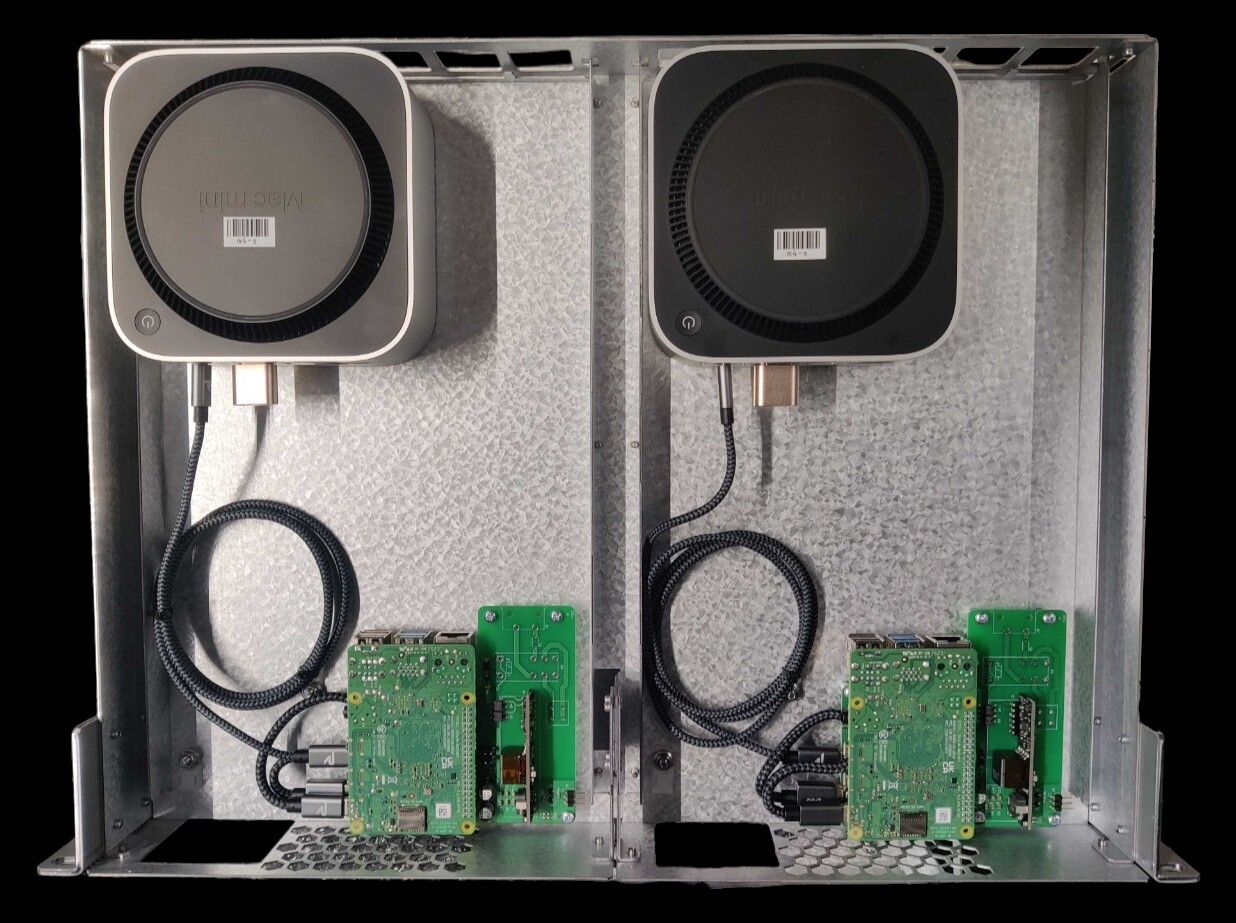
Scaleway’s Mac Mini Meets Virtual Private Cloud
Scaleway takes another step forward by offering VPC (Virtual Private Cloud) integration for its Apple Silicon Mac mini servers.

Take a behind-the-scenes look at how Scaleway brought the Mac mini as-a-Service to life — transforming Apple’s compact desktop into a highly available cloud server hosted in state-of-the-art datacenters.
Apple designs the Mac mini. inmac wstore supplies it. Scaleway transforms it into a ready-to-use dedicated server, accessible remotely from anywhere in the world.
Scaleway’s mission is clear: to provide iOS and macOS developers, macOS software users, and businesses of all sizes with remote access to the power of Apple silicon (M-series) chips — all within a controlled, secure, and high-performance environment.
Each Mac mini is managed automatically. Once installed in the racks, Scaleway’s teams add a custom Mobile Device Management (MDM) profile to deploy system settings remotely, along with a set of server-specific tools that compensate for the lack of a Baseboard Management Controller (BMC). This enables granular management of each machine.
Thanks to this process, we at Scaleway can deliver a consumer-grade Mac mini as a fully reliable dedicated server, seamlessly integrated into our cloud ecosystem — ready to meet even the most demanding production needs.
All Scaleway Mac minis are hosted exclusively in French datacenters, ensuring sovereign hosting that meets the highest standards for security, privacy, and data locality in Europe.
At the heart of this infrastructure lies Opcore DC2, Scaleway’s strategic datacenter located in Vitry-sur-Seine, where hundreds of Mac minis run side by side with traditional bare-metal servers — all within a resilient, high-performance network architecture monitored in real time.
Scaleway’s datacenter design reflects its commitment to performance and reliability:
The Mac mini wasn’t originally designed for datacenter environments: there’s no BMC (Baseboard Management Controller), no native remote firmware access, and no standard rackmount format.
To overcome this, Scaleway engineered a custom chassis where each Mac mini is placed in an individual sliding tray. This allows any unit to be removed for maintenance without disrupting the others — ensuring maximum density and ease of access. Ethernet cabling is carefully organized to guarantee fast, stable network connections.

Each rack can hold up to 96 Mac minis, an impressive density compared to traditional servers. This is made possible by two key factors:
As a result, Scaleway’s Mac mini racks are among the most energy-efficient server setups in the cloud industry.
However, the absence of a BMC posed a major challenge: how to perform critical remote operations without physical access?
Scaleway’s solution to that problem was ingenious: embedding a Raspberry Pi module with each Mac mini.

Each Raspberry Pi acts as a control layer, sending commands such as reboot or remote reinstall to the Mac mini. As a result, each system is autonomous: this allows full lifecycle management of the machine from installation to customer delivery, and avoids any need for physical intervention on the device.
Scaleway plans to keep expanding its Mac mini fleet as cloud-native development evolves. Future versions of macOS, the rise of AI workloads, and the growing need for macOS environments in cross-platform development are all driving demand.
With Mac mini as-a-Service, Scaleway delivers a powerful, flexible solution designed for developers, tech companies, and demanding freelancers alike.
Access the power of a Mac as if it were on your desk — without the hardware constraints.

Scaleway takes another step forward by offering VPC (Virtual Private Cloud) integration for its Apple Silicon Mac mini servers.